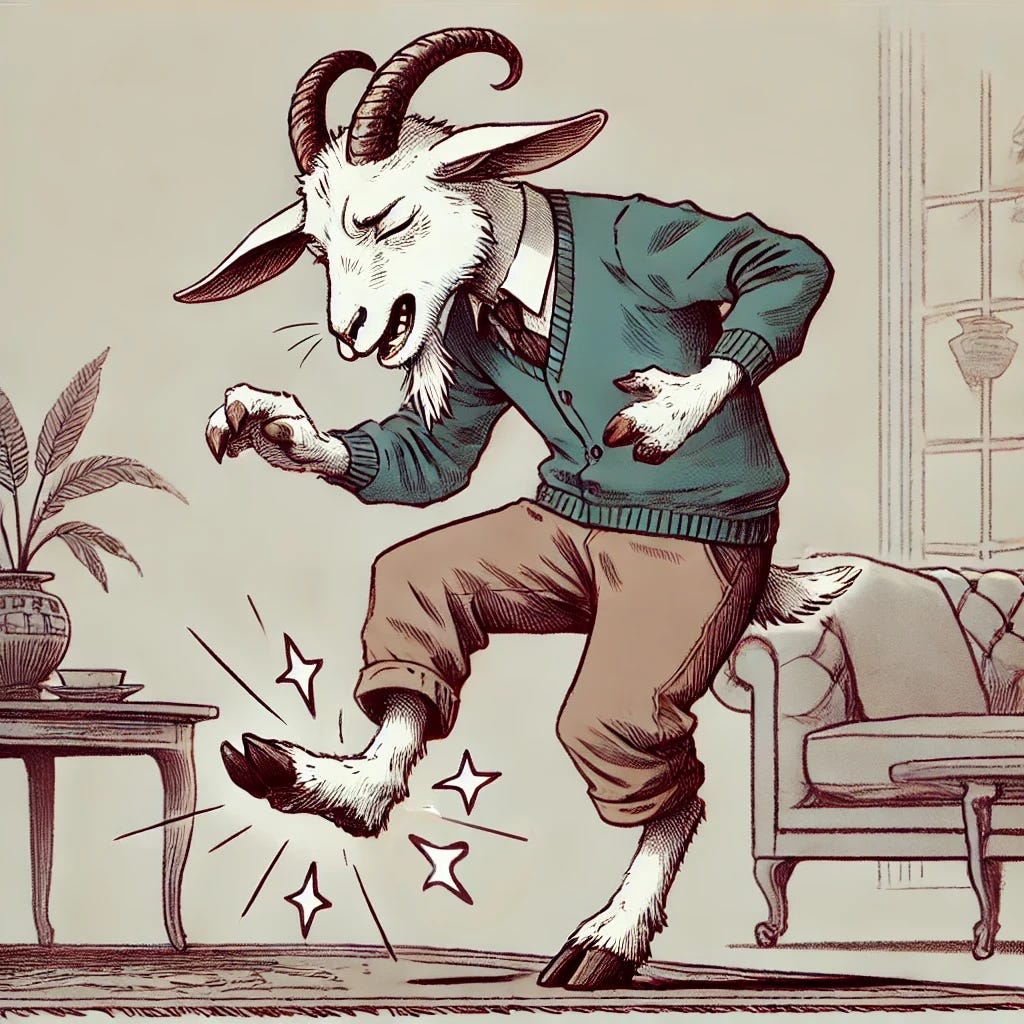That bolt of pain is shooting up your leg, all the way up your spine. Even the back of your head feels sympathy pain! You’ve just stubbed your toe.
That terrible incident may well stay isolated, gradually moving from your short-term memory over to your long-term storage facility, where only the faintest summaries of most events reside. That’s pretty likely, since stubbing your toe is routine.
On the other hand, this might be the worst you’ve ever stubbed your toe before. Maybe there’s even a little blood or a bent-back toenail to add to the visual impact when you look at your toe, so now you’re much more likely to remember the incident.
You start to avoid going into the room where you stubbed your toe because it brings back painful, scary memories of the time you stubbed your toe really badly. It starts getting harder to sleep at night because the image of your mangled toe—and the fear that it’ll happen again—keep returning to your mind.
You start wearing hard shoes around in your house. You really want to make sure this never, ever happens again, and you’re bending over backwards to do so.
This is now crossing over from a one-off incident that gets left in the past, and into the realm of what psychologists call trauma. Now, stubbing your toe isn’t likely to cause you trauma—this is just an example that I hope won’t trigger any sort of real trauma for you, so let’s keep that in mind going forward.
We’re talking about a profoundly unsettling or painful incident that follows you around afterward, so to speak. Trauma isn’t the event itself, but instead what comes next.
What comes next depends on the individual affected by the incident, but there are some common symptoms. Most of us will flash back to something terrible in our lives from time to time, but it’s fairly typical for such a moment to pass fairly quickly. If these moments don’t pass quickly or happen all the time, there is very likely trauma involved.
Seeing, hearing, or even tasting something can trigger trauma. Sometimes we remember things with parts of our minds that aren’t conscious, and a sensation we associate with an event can be a trigger, so it brings a flood of emotions back to us in an instant.
This can cause a person to avoid going anywhere near wherever the incident happened, but it can also mean avoiding friends and family. Other negative emotional behavior can easily spiral out once your support base starts to crumble.
Maybe the worst aspect of trauma (for some folks) is the hypervigilance. There’s the idea that if you let your guard down for just a sec, whatever happened to you will happen again. This means you’re always on edge, never really resting.
It might be best to think of trauma as the giant tree that grows from an acorn—the event that causes the trauma. The trauma isn’t the event itself, but instead its aftermath. This gives you the impression that there’s a lot to deal with, not just a little acorn.







At its extreme, trauma takes the crippling of Post Traumatic Stress Syndrome (PTSD), long known to harm soldiers (it was first known as "shell shock" during WW1), but increasingly known to be part of the general public's makeup as well.
This is a completely brilliant explanation of trauma – thank you.